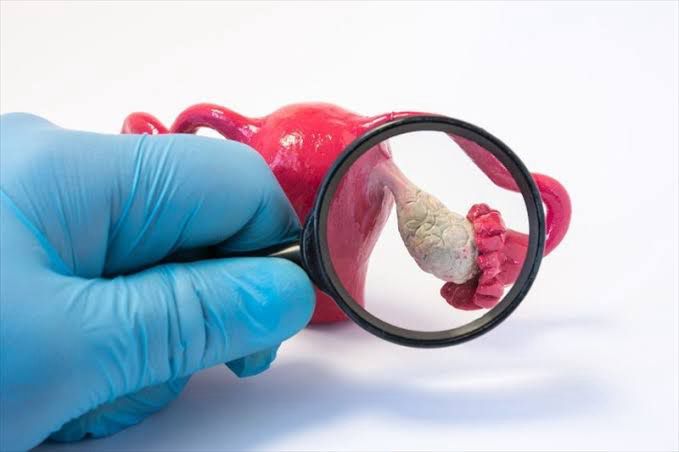Polycystic Ovary Syndrome (PCOS) is a common hormonal disorder that affects people with ovaries (women) typically during their reproductive years. It is characterised by a combination of symptoms.
Symptoms:
* Irregular menstrual cycles: Women with PCOS often have irregular or absent periods. Some may experience heavy bleeding during their monthly flow.
* Ovulatory problems: PCOS can lead to difficulty in ovulating regularly, which can affect fertility.
* Excess androgen hormones: Elevated androgen levels in PCOS can result in symptoms such as acne, oily skin, hirsutism (excessive facial or body hair), and male-pattern baldness.
* Polycystic ovaries: On ultrasound, the ovaries of individuals with PCOS may show multiple small cysts (fluid-filled sacs), although not everyone with PCOS has these cysts.
* Weight gain: Many individuals with PCOS struggle with weight gain or obesity.
* Insulin resistance: Some may develop insulin resistance, which can increase the risk of type 2 diabetes.
* Mood changes: PCOS may be associated with mood disorders like depression and anxiety.
Risk Factors:
The exact cause of PCOS is not fully understood, but several factors are believed to contribute to its development. Risk factors for PCOS include:
* Genetics: PCOS tends to run in families, suggesting a genetic component. If you have a close female relative (such as a mother or sister) with PCOS, you may have a higher risk.
* Hormonal Imbalances: Hormonal disruptions play a key role in PCOS. Elevated levels of androgens (male hormones) and insulin resistance are common features.
* Insulin Resistance: Many individuals with PCOS have insulin resistance, which can lead to higher insulin levels in the body. This can affect ovarian function and contribute to the symptoms of PCOS.
* Obesity: Excess body weight, particularly abdominal obesity, is a significant risk factor for PCOS. Obesity can exacerbate insulin resistance and hormonal imbalances.
* Sedentary Lifestyle: Lack of physical activity and a sedentary lifestyle can contribute to obesity and worsen insulin resistance, which can increase the risk of PCOS.
It’s important to note that while these are risk factors, they don’t guarantee that someone will develop the syndrome. PCOS is a complex condition with varying presentations, and not everyone with these risk factors will experience it.
SOURCE: https://leadership.ng/pcos-the-pains-women-go-through/

